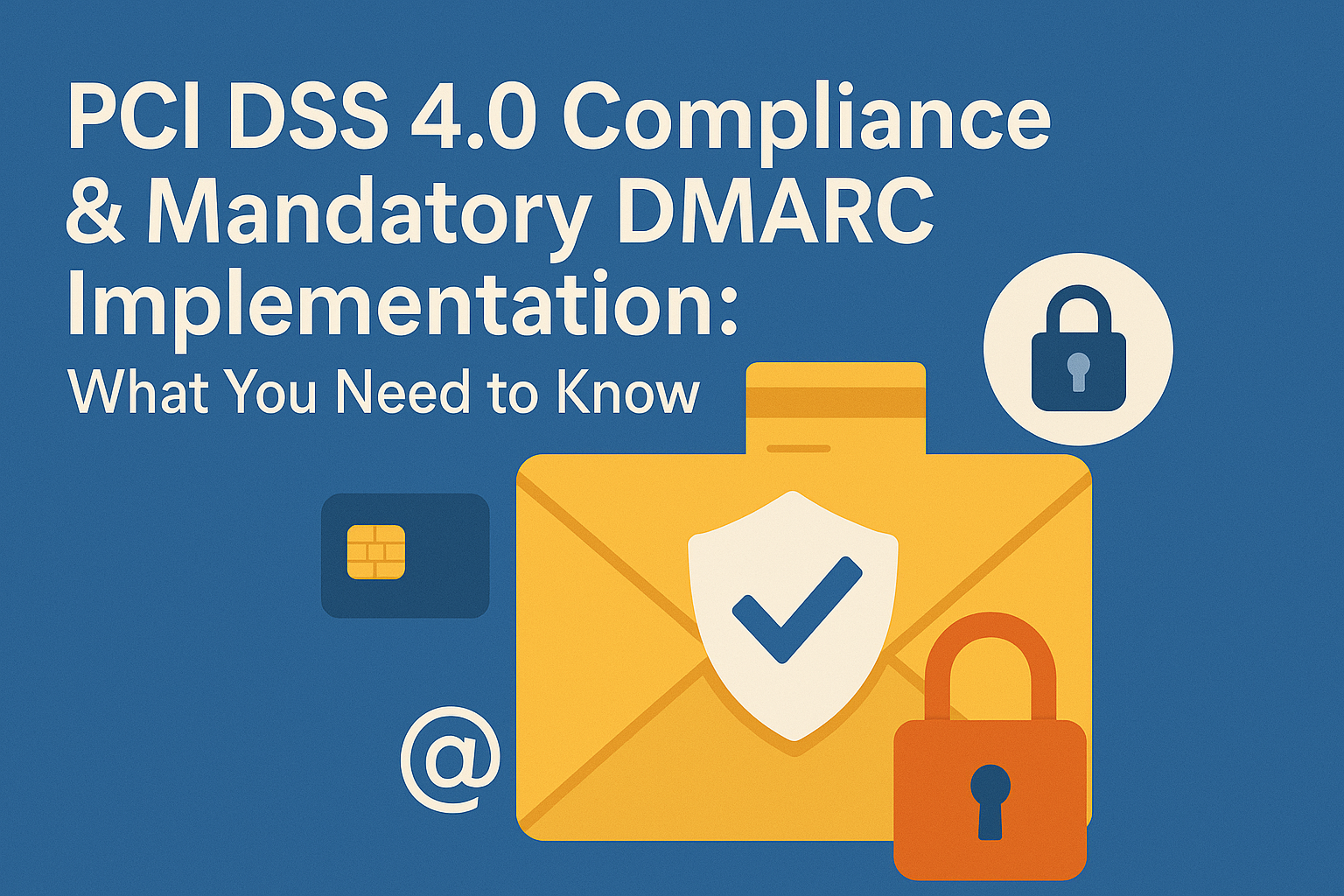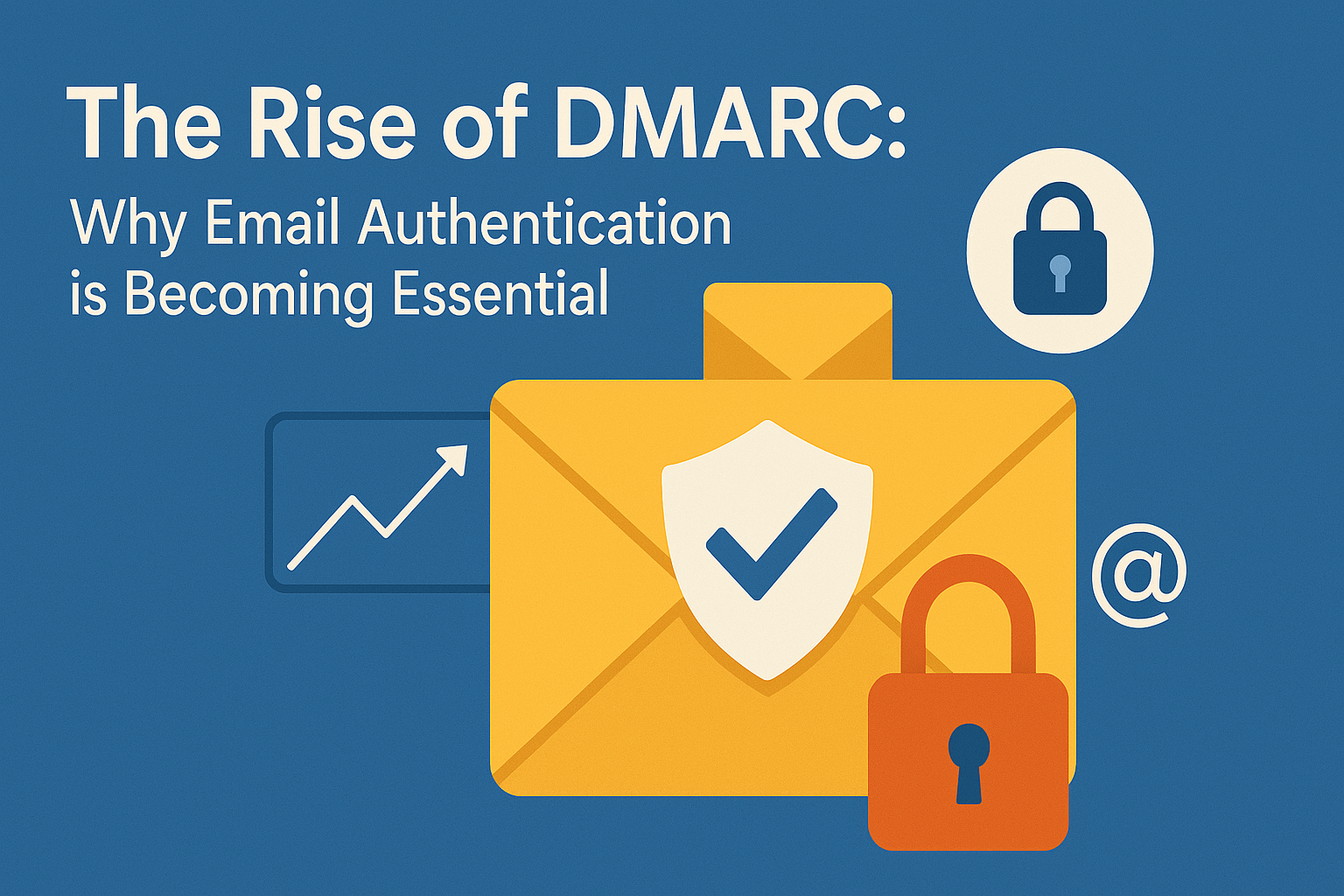By March 31, 2025, organizations handling payment card data must comply with PCI DSS v4.0, which includes mandatory DMARC implementation. This shift aims to enhance email security and protect businesses from phishing, spoofing, and other cyber threats.
With cybercriminals leveraging increasingly sophisticated attack methods, the PCI Security Standards Council (PCI SSC) has strengthened security protocols to ensure businesses are better equipped to handle modern threats.
Key Updates in PCI DSS 4.0 (Effective 2025)
The latest version of PCI DSS replaces v3.2.1 and introduces crucial upgrades designed to reinforce security across organizations that process, store, or transmit cardholder data. Some of the major changes include:
- Email Authentication Requirements: Organizations must implement DMARC, SPF, and DKIM to prevent fraudulent emails and impersonation attacks.
- Stronger Access Controls: Multi-Factor Authentication (MFA) is now required for all access points, and password policies have been updated to minimum 12-character passwords with stricter lockout rules.
- Annual Technology & Risk Reviews: Businesses must conduct a comprehensive hardware/software security review annually to detect vulnerabilities before they are exploited.
- Proactive Threat Management: Compliance now emphasizes early detection and rapid response to security threats, ensuring businesses take action before incidents escalate.
- Tighter Network Security & Encryption: Reinforced encryption standards and strict access permissions help safeguard sensitive cardholder data.
- Simplified Compliance Procedures: Outdated security requirements have been removed, making compliance assessments more streamlined and efficient.
For the full list of updates, check the official PCI DSS change summary: PCI DSS v4.0 Summary of Changes
Who Needs to Comply?
If your organization stores, processes, or transmits cardholder data, compliance with PCI DSS v4.0 is mandatory. This applies to:
🏢 Businesses handling credit card transactions (E-commerce, retail, hospitality, healthcare, etc.)
💳 Financial institutions, banks, and payment service providers
📊 Third-party vendors & service providers with access to payment systems
🔒 Any entity storing or transmitting sensitive authentication data (SAD)
Even if your organization doesn’t process transactions directly but has network connectivity to payment data handlers, compliance is still required.
Achieving PCI DSS Compliance with VebDMARC
Ensuring compliance with PCI DSS v4.0 doesn’t have to be complex. VebDMARC provides a fully managed email authentication service that helps organizations meet DMARC, SPF, and DKIM requirements effortlessly.
🔹 Hosted DMARC Services – Get instant DMARC enforcement with automated configuration and policy enforcement.
🔹 Advanced Email Reporting & Monitoring – Track and audit your email traffic with detailed DMARC reports, ensuring visibility into fraudulent activity.
🔹 Simplified Compliance Management – With a user-friendly dashboard and automation tools, managing PCI DSS email security requirements becomes seamless.
🚀 Get started with VebDMARC today and ensure your compliance before the March 2025 deadline. Visit VebDMARC.com to learn more.
Why PCI DSS Compliance is Critical for Businesses
Why PCI DSS Compliance is Critical for Businesses
- Protection Against Fraud & Data Breaches – Safeguard cardholder information from hackers attempting to exploit vulnerabilities.
- Improved Customer Trust – Demonstrating compliance reassures customers that their data is secure.
- Stronger Email Deliverability – Implementing DMARC prevents fraudulent emails from being sent on behalf of your domain, improving inbox placement.
- Avoid Costly Penalties – Non-compliance fines range from $5,000 to $100,000 per month, making compliance an essential business requirement.
Failure to comply with PCI DSS 4.0 not only exposes businesses to security risks but also results in reputational damage, regulatory scrutiny, and financial losses.
How to Prepare for PCI DSS 4.0 & DMARC Compliance
- Deploy DMARC, SPF, and DKIM to secure email communications.
- Enforce a strict DMARC policy (p=reject or p=quarantine) to prevent phishing and spoofing.
- Regularly audit your security infrastructure to ensure compliance with the new PCI DSS requirements.
- Implement anti-malware and phishing protection to prevent malicious emails from reaching employees.
- Train employees on cybersecurity best practices to strengthen organizational awareness.
Final Thoughts
The shift to PCI DSS v4.0 marks a pivotal step in strengthening payment security worldwide. Email authentication plays a key role in this transformation, and DMARC enforcement is now a non-negotiable requirement for businesses handling card transactions.
By acting before March 2025, companies can secure their email domains, prevent fraud, and ensure smooth compliance with evolving security regulations.
👉 Secure your organization’s email today with VebDMARC! Visit VebDMARC.com and stay ahead of cyber threats.



